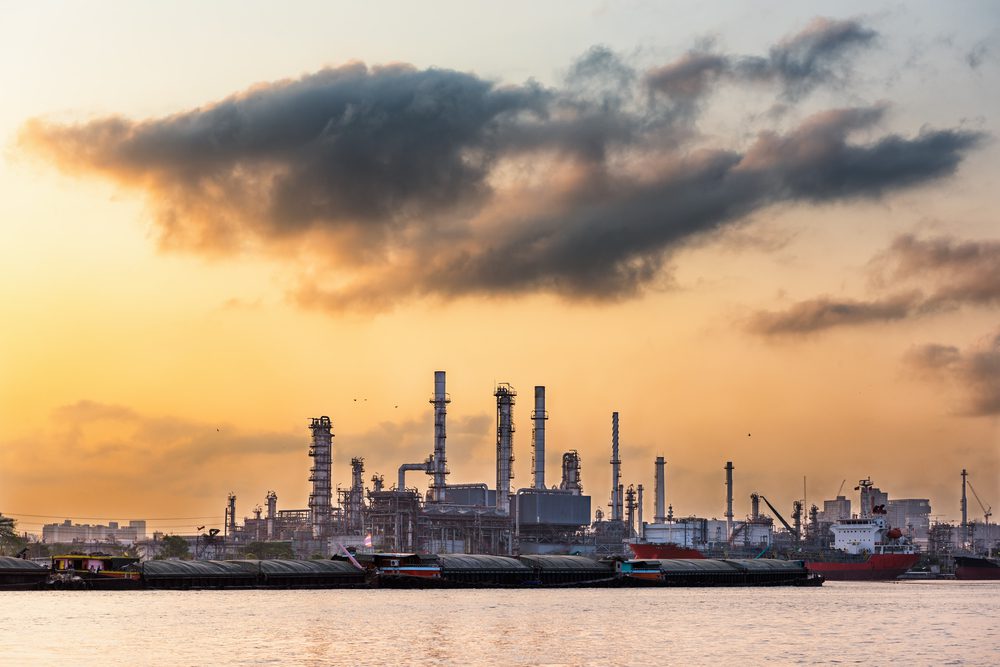Photo: By K.D.P. / Shutterstock
By Saket Sundria and Bill Lehane (Bloomberg) –Multiple oil refineries in Europe will be too unprofitable to continue trading once the industry has dealt with sweeping new rules governing shipping fuel that start next year, according to an executive at a U.K. plant.
Refineries globally are bracing for one of the biggest mandated changes in the the industry’s history — rules forcing the vast majority of ships to use fuel containing less sulfur. The regulations, widely known as IMO 2020, start in January and have been touted as positive for companies that turn crude into more valuable products. But smaller, simpler plants in Europe often churn out excess gasoline, as well as the type of fuel that will soon become outlawed for most vessels.
“Post the shift, I believe some of these old weak refineries will have to shut down,” Srinivasalu Thangapandian, the chief executive officer of Stanlow-oil refinery owner Essar Oil U.K., said in an interview in Singapore. “Fuel oil is going to be negative and gasoline, you see margins of almost zero sometimes. Europe is heavily oversupplied in gasoline.”
The refineries hardest hit would be those designed to devote almost half their production to gasoline, and as much as 14% to high sulfur fuel oil, he said, adding that Stanlow won’t suffer the same pressures because it churns out smaller proportions of those fuels.
Still, analysts at Wood Mackenzie Ltd. and Facts Global Energy said Europe’s refineries — long pressured by expanding capacity elsewhere in the world — may be able to continue a while longer. A surge in capacity in the Middle East and Asia in the mid-2020s is what would be most likely to force halts in Europe, they said.
“EU demand for gasoline is falling but Asian demand is growing, albeit slowly,” said Steve Sawyer, London-based head of refining at Facts Global Energy.
And while Europe’s older refineries will miss out on some of the margin boost from IMO 2020 for diesel-like fuels, they still stand to gain from changing crude prices that mean certain types of oil that they process will fall in price — such as Russia’s Urals, said Alan Gelder, London-based vice president of refining, chemicals and oil markets at Wood Mackenzie.
Some Mediterranean plants could reduce their operating rates if exports to the East struggle, but Gelder said he doesn’t see earnings falling far enough to justify any closures.
“If exports to Asia are proving difficult there will be run cuts,” he said. “But we see the current weakness in margins as very short term, margins won’t fall to rationalization levels.”
Another factor that could help struggling European refiners is a delay in starting up new refining capacity. While a giant new plant in Nigeria is currently slated to start producing in late 2020, it may take a little longer than that to be fully up and running, delaying increased competition for European operators, Gelder said.
“The future of EU refining will largely depend on how refinery investment goes in the Middle East and Asia,” Sawyer said. “If it continues aplenty, then some EU refiners will be in trouble post-2025 as there will be too much capacity globally. If the Middle East and Asia show some restraint it might not be too bad, although margins will be at a lower level than those over the last few years.”
© 2019 Bloomberg L.P

 Join The Club
Join The Club











